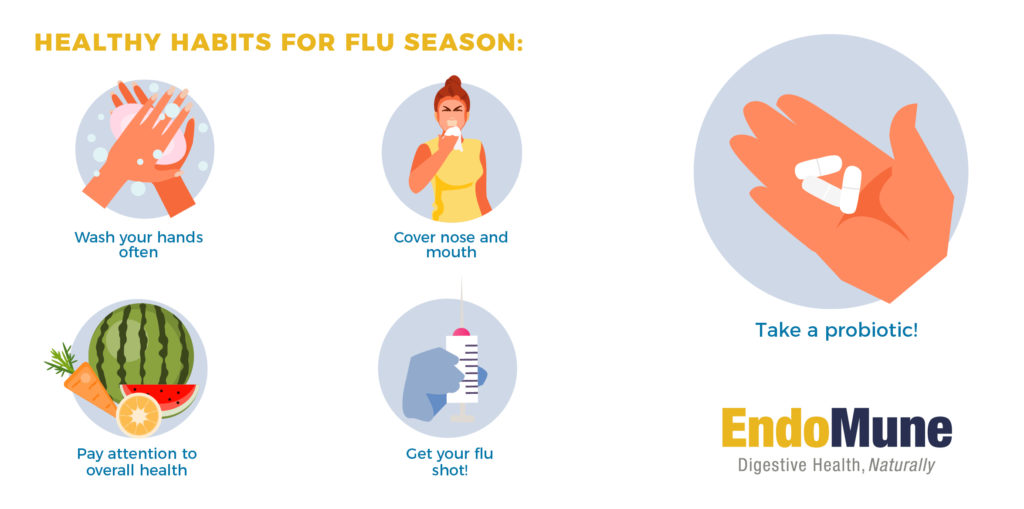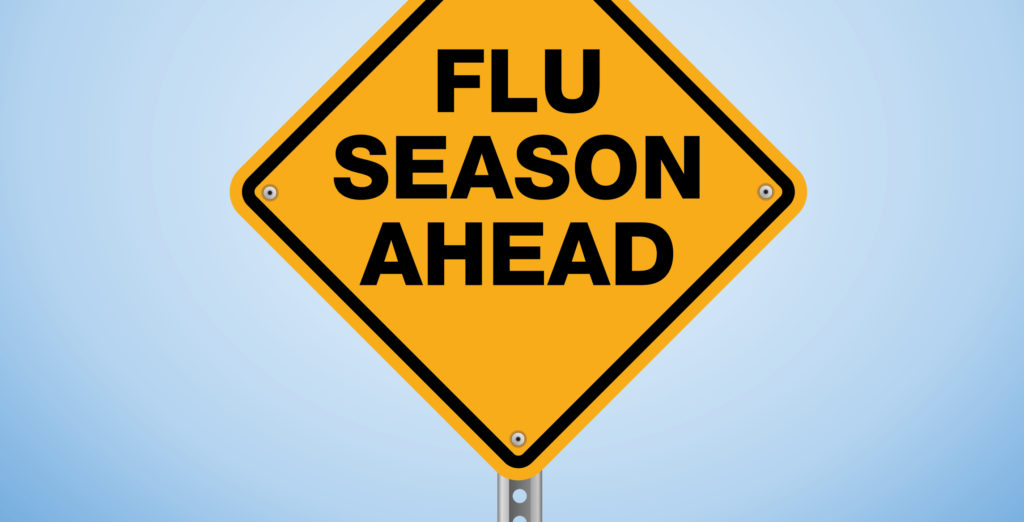Take a Probiotic During This Dangerous Cold/Flu Season!
Are you REALLY prepared for the cold and flu season?
Depending on where you live in the United States, the flu season has already arrived much earlier than expected, and with a vengeance — spreading even more quickly in the Southern states.
Experts believe the flu season may peak much earlier than usual. As of now, more than 1.7 million cases have been diagnosed so far, according to the CDC — because one of the viruses now in circulation (a B/Victoria strain) usually doesn’t spread until Spring.
The signs point to many Americans being sick with the flu at the same time, leading some experts to suggest preparing for the worst.
We’re already in the “season” when we spend more time inside than outside. And, our respiratory systems are dealing with changes in humidity, thus creating opportunities for sore throats, and runny noses.
Fortunately, there are a lot of simple things you can do to protect and fortify your health during the cold and flu season.
Follow these healthy habits!
- Wash your hands often, especially during the cold and flu season. Avoid using soaps, toothpastes or shampoos containing antimicrobial chemicals like triclosan.
- When you’re sneezing or coughing, cover your nose and mouth.
- Pay attention to your overall health. Get the right amount of rest, keep stress at a minimum, stay active and eat nutritious foods.
- Be sure to get the flu shot, even now!
But, are you taking a probiotic too?
Improve your immune system!
There are good reasons for taking a probiotic, especially if you’re older. However, one of the most important reasons for taking a probiotic right now is boosting your immunity to the flu.
Based on a systematic review of studies, researchers concluded taking a probiotic or a prebiotic anywhere from 2-28 weeks, boosted the overall effect of receiving a flu shot — especially when taken for longer periods of time and by healthy older folks, too.
Take fewer antibiotics!
Patients and health professionals rely way too much on antibiotics. People fall back on antibiotics for many health problems, and doctors are all too happy to write prescriptions for them.
Yet, the CDC estimates about 47 million prescriptions written every year for antibiotics are completely unnecessary, raising the risks that when you really need them, they will not work as they’re intended.
However, a recent economic modeling study found taking probiotics may be the better (and safer) option to fight flu-like infections.
A daily probiotic could save the American economy (and your pocketbook directly) as much as $1.4 BILLION, not to mention decreasing the need for antibiotic prescriptions by at least 1.39 million.
Protect your kids!
When it comes to the immune health of your kids during the cold and flu season, don’t forget to protect your little ones with probiotics too.
A team of Swedish researchers recently found giving young children a daily dose of probiotics (containing strains of Lactobacillus) in a day care setting was very beneficial in treating common cold infections, according to t a study appearing in the European Journal of Nutrition.
Not only did their severity of symptoms fall sharply, so did the use of medications, absences from day care and even fewer instances of fussiness and crying.
Maintain your good health by taking a probiotic!
I cannot stress enough that a healthy immune system is the foundation that will help to protect you when everyone else around you is fighting colds and the flu.
Following the steps I outlined above plus taking a daily probiotic containing multiple strains of beneficial bacteria can go a long way toward keeping you and your family healthy.
EndoMune Advanced Probiotic and EndoMune Jr. Advanced Probiotic feature strains of beneficial bacteria from the Lactobacillus and Bifidobacterium families plus a prebiotic (FOS) that feeds the good bugs in your gut.
References
Take a Probiotic During This Dangerous Cold/Flu Season! Read More »



